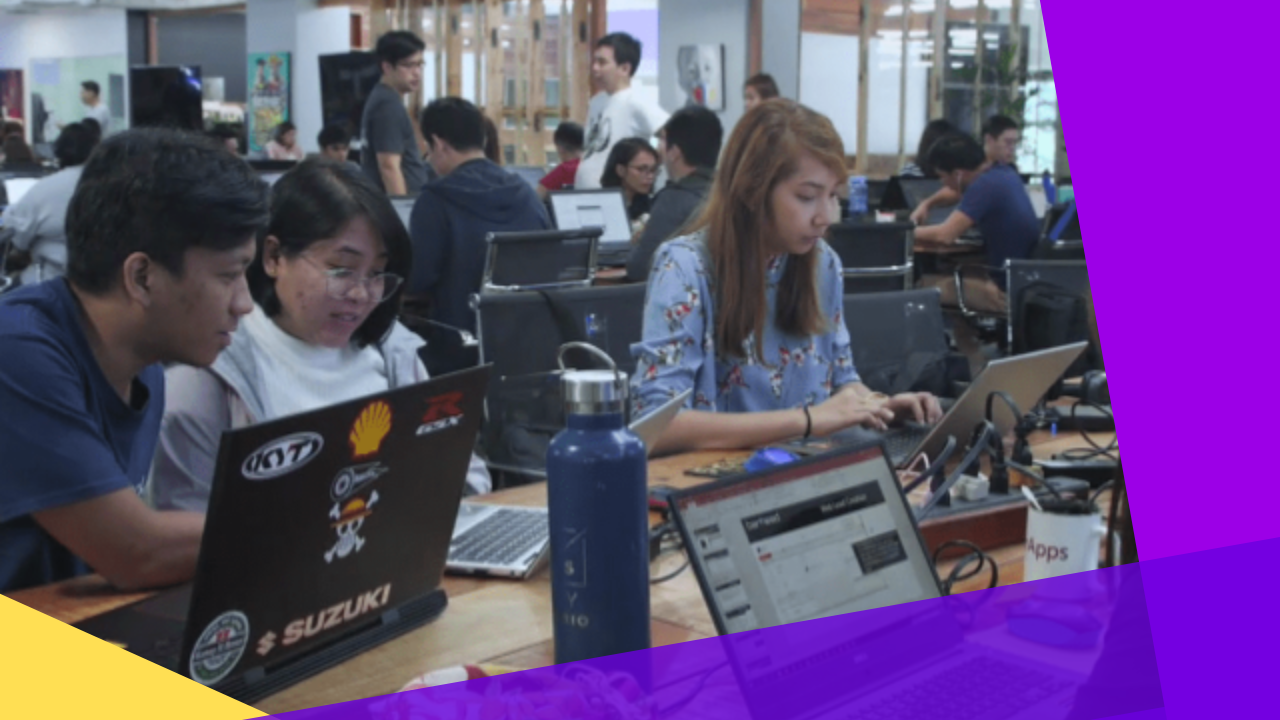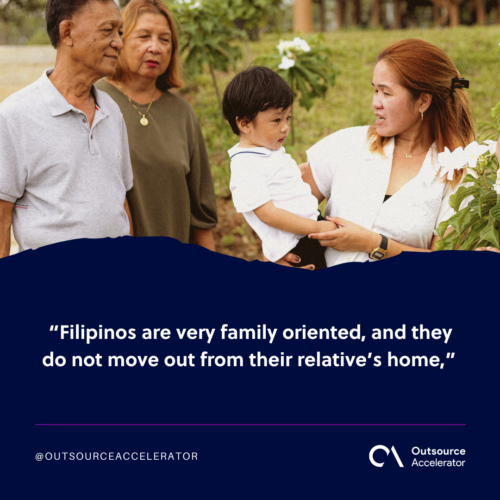The resiliency and adaptability of the Filipino workforce

Gerrard Aguelles, a technical trainer and web developer, shares his insight on traits of the Filipino workforce that drive them to become more competitive and highly skilled.
In an ideal world, measurable data is often the basis of a business decision. However, the reality is that there are intangibles that turn ‘simple’ into ‘complicated.’
On paper, outsourcing in the Philippines is not only a viable option. It can also be the only logical choice for some companies to continue their growth. A cause for pause could be unfamiliarity with the Filipino workforce and its capabilities.
On episode 82 of the Outsource Accelerator podcast, Derek Gallimore spoke with technical trainer Gerrard Aguelles. Not only was he gracious in accepting the invitation, but he also shared insight into his attitude that allowed him to grow his career.
It is not Derek’s intention to promote any single individual. Instead, the opportunity to speak to a highly-skilled professional offers business owners outside the Philippines a peek into the traits and abilities of Filipinos.
Ultimately, the goal is to act as a bridge between the Philippine BPO industry and potential clients by dispelling some of the unknowns.
Number of the Filipino workforce
The Philippines is one of the most populous countries in the world, with a total population of about 113 million. The Filipino workforce stands at about 47 million people.
The size of the Filipino workforce has been steadily increasing over the years. However, it has yet to keep pace with the population growth rate. This means that there are more people entering the workforce than leaving it, which puts pressure on job opportunities and wages.
This is where the outsourcing industry comes in.
Adapting to changes in technology
Gerrard worked for a company providing training for multinational corporations. His specialty was JavaScript.
“I took that teaching opportunity to learn more about technology,” he said. “To be honest, I was not confident enough when I graduated.”
The country is on the verge of joining the elite developing nations of the world. Even so, there is some trepidation about its educational system, particularly regarding technology.
In some instances, the rapid evolution renders one technology outdated soon after graduating. It is a worldwide concern, not just in the Philippines.
In an emotional commentary, CNN’s Anderson Cooper thanked the Filipinos for showing the world how to live. He had personally seen the aftermath of the most devastating hurricane in modern history when it hit Tacloban City.
“Can you imagine the strength it takes living in a shack, to be sleeping on the streets next to the body of your dead children?” Anderson asked. “Can you imagine that strength? I cannot.”
In the worst possible times, Filipinos have shown remarkable resilience. It is a trait embedded in the DNA of a nation of fun-loving and God-fearing people. Such a characteristic has also propelled Filipinos to strive hard and adapt.
“I need to learn more. Being trained and teaching where you try to learn new technology, not only for yourself but others is effective,” Gerrard explains. “When you study something that you will teach, you understand more and learn faster.”
While Filipinos strive to learn, the massive growth of the BPO industry has given them opportunities.
It is not only an income but also a platform for people to propel themselves to higher levels of expertise. Such is the potential that clients are tapping into by outsourcing in the country.
Filipinos are family-oriented
The BPO industry is a diversified industry and not limited to call centers. In most cases, Filipinos work on the premises of a company.
However, there are operations where the staff work from home. Also, there is rapid growth in the sector of individual online freelancers.
In any relationship, dealing with countrymen is already challenging. So, imagine how much more complicated it can be when working with different cultures.
“Filipinos are very family oriented, and they do not move out from their relative’s home,” Gerrard notes. “Most of the Filipinos live with their families, and if you live with many people, it is very hard to focus.”
Breaking the barriers of cultural differences takes more than connecting the dots. In a sense, one of the roles of BPO companies and consultants is to close the gap. In other words, they have the necessary skills to handle the local culture.
Outsourcing, though, does not mean that foreign clients need to tap into the BPO companies. There are a lot of small-to-medium-size companies that hire online freelancers directly.
In this sector, the prospect of distraction can come at the cost of productivity.
Although there are distractions in the household, there are also positive signs. Many Filipinos realize that online freelancing is not only a viable income source but a lucrative one too. Because of that, the competition increased, resulting in higher levels of professionalism.
Besides Filipinos acquiring new skill sets to work remotely, others with a high degree of expertise have to stay home because of circumstances. In essence, this has widened the pool of available skilled remote workers.

Working with foreigners
It has been five centuries since Ferdinand Magellan claimed the archipelago for Spain. Throughout much of its history, the country was a colony of the Spaniards and, for a few years, the United States.
Arguably, no other nation on earth has as much diversified foreign influence as the Philippines.
It is not only the colonial powers of the past that have molded its culture, but also the immigrants from other Asian countries. Furthermore, despite the extremists in Mindanao, it is the only country where Christians and Muslims live in relative harmony.
Some people may view foreign influence as a form of anti-nationalism. However, it is also because of this that gave Filipinos the uncanny ability to adapt to the international culture.
“A lot of the guys that people work with (in the Philippines) are very experienced in working in outsourcing firms and BPOs and all that,” Derek said.
“So actually, the people that need the most training are the employers, owners of the businesses and clients of the BPOs because there are some subtleties and nuances they have to get used to, to get the best out of their teams.”
Derek, of course, speaks from a position of authority, having seen both sides of the fence.
In the past, a sentiment among old-timers was that working with foreigners fell under ‘colonial mentality.’ This was especially true among those who lived through the Second World War.
Today, that has changed. At its core, it is the opportunity to make a decent living that is the driving force.
“… A fun thing about it is you get to work with people overseas, and you compare how they work with your current work setup,” Gerrard explains. “Getting to work with people overseas will teach you a lot.”
Instead of thinking of the present, there is also a growing number in the Filipino workforce who see it as an opportunity to learn. Globalization allows for borderless opportunities.
By outsourcing to the Philippines, companies are tapping not only into the skilled workforce but also very competitive ones too.
Putting it all together
Gerrard has revealed a fascinating insight into Filipino traits. He has shown how resilient Filipinos can be and the things people do to become competitive. Before the means and the methods, there has to be the desire. With that, all things become possible.
People from Western countries may view the fact that most Filipinos live with their parents as strange. In fact, it can become a distraction. Still, chaos itself is also routine. If not for anything else, being with the family is a constant reminder to continue to strive harder.
For the Filipino people, there is no higher motivation than to provide for the family. To do that, they will not only work hard but also find ways to put themselves in a position to succeed.
Click here to listen to the full episode 82 of the OA podcast conversation between Derek Gallimore and Gerrard Aguelles.







 Independent
Independent




